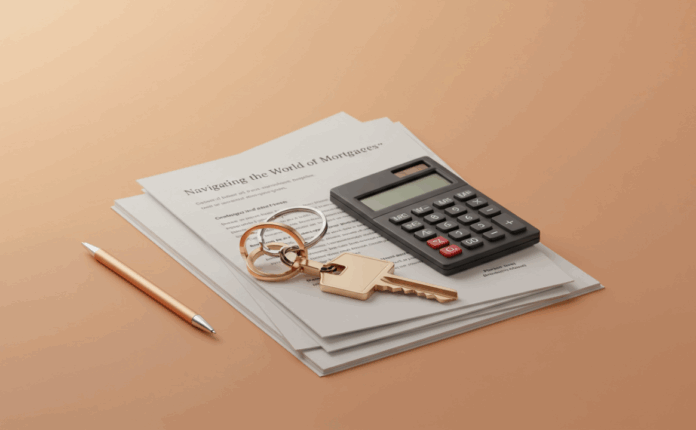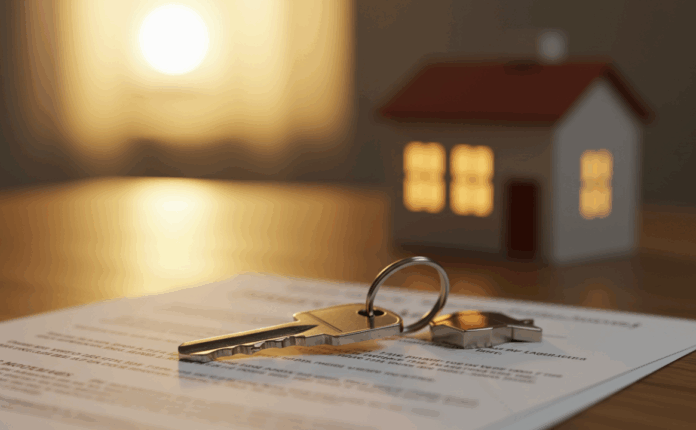Navigating the world of mortgages can feel like entering a maze, but understanding the key elements can make the process significantly smoother. This guide will break down the essentials of mortgage loans, helping you make informed decisions.
Understanding Mortgage Loan Types
There’s a wide variety of mortgage loan types available, each with its own set of terms and conditions. The most common include fixed-rate mortgages, adjustable-rate mortgages (ARMs), and government-backed loans like FHA and VA loans. Choosing the right type depends largely on your financial situation and long-term goals. For example, fixed-rate mortgages offer stability, while ARMs may start with lower interest rates. You should carefully consider which option aligns best with your needs. It is important to consult with a financial advisor to determine what is best for you.
Factors Affecting Your Mortgage Rate
Several factors influence the interest rate you’ll receive on your mortgage. Your credit score is a major one; a higher score typically translates to a lower rate. Your debt-to-income ratio (DTI) also plays a crucial role, as does the loan-to-value ratio (LTV), which compares the loan amount to the home’s value. Understanding these factors will help you prepare for a successful mortgage application.
The Mortgage Application Process
Applying for a mortgage involves several steps, starting with getting pre-approved. This gives you a clear picture of how much you can borrow. Next, you’ll need to find a suitable property and make an offer. Once accepted, the lender will conduct an appraisal and review your paperwork before finalizing the loan. This entire process can take several weeks, even months, so be prepared for a timeline that isn’t rushed. Many things can cause delays, so it is best to be patient. You can learn more about the mortgage application process here.
Down Payment and Closing Costs
A significant portion of the home-buying process revolves around the down payment and closing costs. The down payment is the initial amount you pay upfront, and closing costs encompass various fees associated with finalizing the loan. These costs can be substantial, often running into the thousands of dollars. It’s wise to budget carefully to cover both.

Understanding Your Mortgage Payment
Your monthly mortgage payment comprises several components: principal, interest, taxes, and insurance (often abbreviated as PITI). Understanding each component will help you accurately budget for your homeownership expenses. You can use online mortgage calculators to estimate your monthly payments, allowing you to better prepare financially before buying a home. Here is a good resource to find a free online mortgage calculator.
Refinancing Your Mortgage
Refinancing your mortgage involves replacing your existing loan with a new one, potentially at a lower interest rate. This can significantly reduce your monthly payments and save you money over the life of the loan. However, it’s crucial to carefully weigh the benefits and costs associated with refinancing, including closing costs. Consider the fees associated with refinancing your mortgage carefully.
Common Mortgage Mistakes to Avoid
Many pitfalls can arise during the mortgage process. One common mistake is ignoring pre-approval, which can lead to delays or even rejection of your application. Another is overlooking closing costs, which can cause significant financial strain. Finally, not shopping around for the best rates can cost you a considerable amount of money over time. Avoid making these mistakes to increase your chances of a smooth and successful process. Learn more here about avoiding common mistakes.
Protecting Yourself from Mortgage Scams
Be wary of mortgage scams, which are unfortunately prevalent. These scams often involve predatory lenders promising unrealistically low rates or pressuring borrowers into unfavorable terms. Always do your research and work with reputable lenders and real estate agents. Contact the Better Business Bureau if you are concerned about a mortgage lender.
Securing a mortgage can be a complex process but understanding the key elements empowers you to navigate it effectively. Remember, thorough planning, careful research, and seeking professional advice are essential for a successful outcome.
Frequently Asked Questions
What is a down payment? A down payment is the initial upfront payment you make towards the purchase of a property when buying a home. The larger the down payment, the smaller the loan amount, which can lead to better interest rates and monthly payments.
How is my credit score important? Your credit score significantly influences your interest rate. A higher score generally leads to lower interest rates and better terms on your mortgage.
What is an escrow account? An escrow account is an account held by your lender to pay for property taxes and insurance premiums. The amounts for these will be included in your regular monthly mortgage payment.
What does PMI stand for and what is it? PMI stands for Private Mortgage Insurance. It’s typically required if your down payment is less than 20% of the home’s value.
What’s the difference between a fixed-rate and an adjustable-rate mortgage? A fixed-rate mortgage has a constant interest rate for the life of the loan, while an adjustable-rate mortgage (ARM) has an interest rate that changes periodically.



